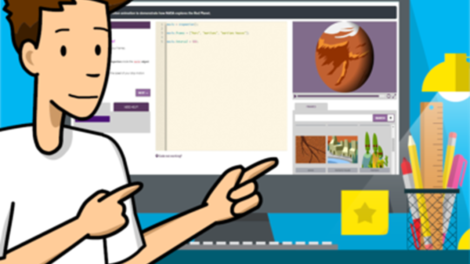CCSS.Math.Practice.MP3
Mathematically proficient students understand and use stated assumptions, definitions, and previously established results in constructing arguments. They make conjectures and build a logical progression of statements to explore the truth of their conjectures. They are able to analyze situations by breaking them into cases, and can recognize and use counterexamples. They justify their conclusions, communicate them to others, and respond to the arguments of others. They reason inductively about data, making plausible arguments that take into account the context from which the data arose. Mathematically proficient students are also able to compare the effectiveness of two plausible arguments, distinguish correct logic or reasoning from that which is flawed, and—if there is a flaw in an argument—explain what it is. Elementary students can construct arguments using concrete referents such as objects, drawings, diagrams, and actions. Such arguments can make sense and be correct, even though they are not generalized or made formal until later grades. Later, students learn to determine domains to which an argument applies. Students at all grades can listen or read the arguments of others, decide whether they make sense, and ask useful questions to clarify or improve the arguments.
Creature Caverns Teacher Guide
Posted by jglassman on
Comparing Unit Rates Lesson Plan: Unit Rates
Posted by jglassman on
Particle Accelerators Lesson Plan: When Particles Collide Movie
Posted by jglassman on
Computational Modeling Lesson Plan: Marvelous Models
Posted by jglassman on

Digital Citizenship Creative Coding Lesson Plan
Posted by jglassman on

Newscast Lesson Plan
Posted by jglassman on

Meme Lesson Plan
Posted by jglassman on
Math Skills Lesson Plan: It’s All Fun and Games
Posted by SM Bruner on





